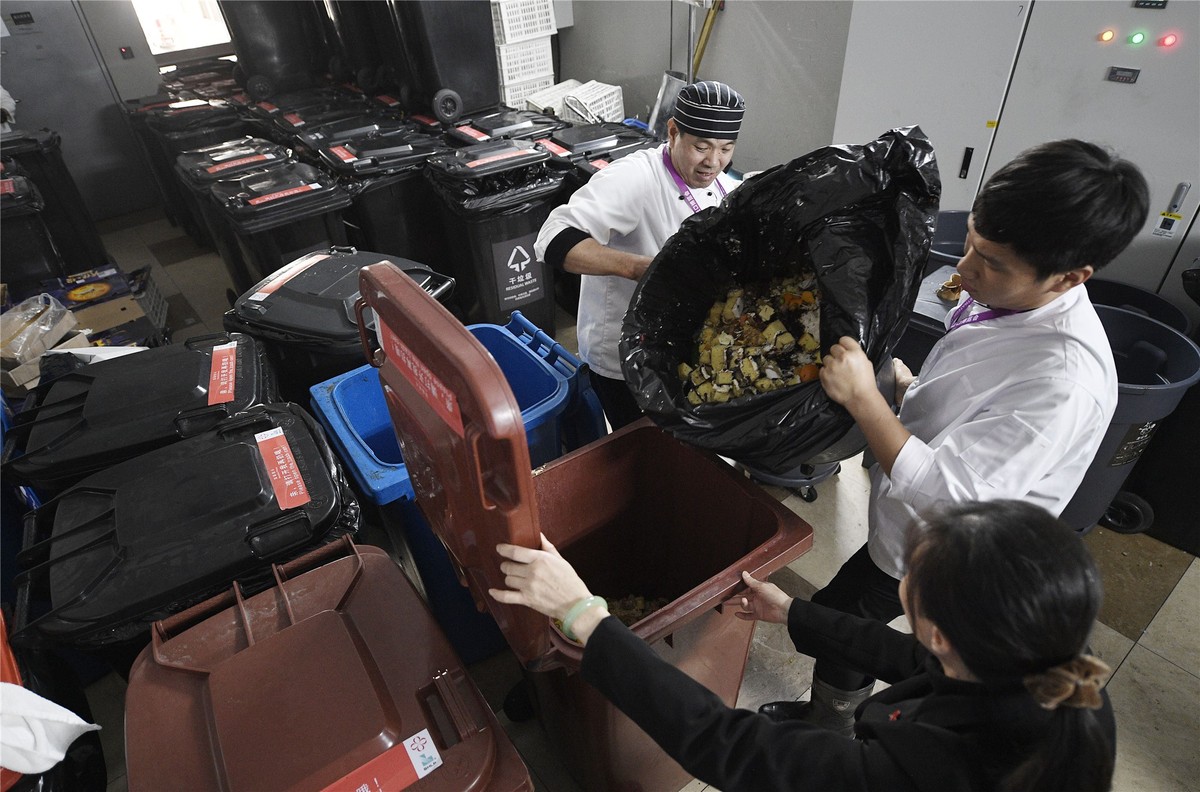Trash-sorting program heralds a zero waste future


Becoming a habit
A survey released on Dec 3 showed that more than 70 percent of citizens of Shanghai dispose of trash in accordance with the four waste categories, and almost 80 percent have got into the habit of sorting their trash and abiding by the regulation.
Shanghai's move is in line with a more ambitious national plan. In 2017, the State Council, China's Cabinet, stated that it planned to establish standards and duplicable models of domestic garbage sorting systems in all 36 municipalities, provincial capitals and cities under separate planning-those with greater freedom regarding economic planning-by the end of next year. The cities' domestic waste recycling rate must be 35 percent or higher.
In April, nine government bodies-including the National Development and Reform Commission, the Ministry of Housing and Urban-Rural Development and the Ministry of Ecology and Environment-issued a work plan for sorting domestic garbage. It added 10 more cities to the 2020 list, saying that all 300-plus cities at prefecture level and above must establish similar systems by 2025.
Many cities have already formulated waste-management laws or renewed existing legislation. In November, an amendment was approved to Beijing's regulations on the management of domestic waste. It will become effective on May 1. Despite adopting slightly different trash categories, the regulation closely resembles the one in Shanghai because of an economic incentive-a 200 yuan fine for violators.
However, regulations alone won't do any good. Hangzhou, capital of Zhejiang province, introduced a new regulation on domestic waste in August, but has failed to achieve significant progress in terms of participation.
"It's not that you promulgate a new law and people will abide by it," said Yu Wei, vice-secretary-general of the Zhejiang Province Environmental Federation, adding that although the trash bins have been changed in his neighborhood, residents still use them to dispose of mixed trash.
In August, Yu's organization joined other social groups to launch a competition for novel ways of promoting trash sorting. The move attracted 111 proposals, such as a trash-sorting song, a trash-identification program based on artificial intelligence, and collection of expired drugs.
"We are reaching out to people and engaging them in various ways. I think this is the best time to launch trash-sorting initiatives, because there's strong government support," Yu said, adding that more fundamental work will be needed before the rules will translate into daily action.
Zhou Chun, founder of the NGO Trash to Treasure in Shanghai, echoed Yu's words. In 2018, she started implementing trash-sorting programs in Shanghai's residential neighborhoods, and has witnessed the incremental changes in people's behavior. At first, residents were reluctant, so volunteers had to go door to door to explain the program, then stand by garbage stations and correct wrongdoers.
"Now, after thoroughly communicating with residents and property management staff, the 80 neighborhoods in our program don't need supervision anymore," she said.
- Guangdong province hit by earthquake
- Pioneering AI system for rare disease diagnosis
- Two giant pandas debut at Urumqi Water Park Zoo
- Six firefighters dead after fall from cliff
- 6 firefighters killed as fire truck plunges off cliff in Central China
- Beijing Spring Festival temple fairs blend tradition with technology





































